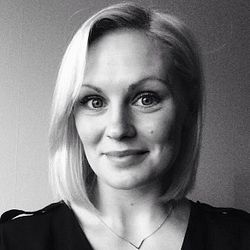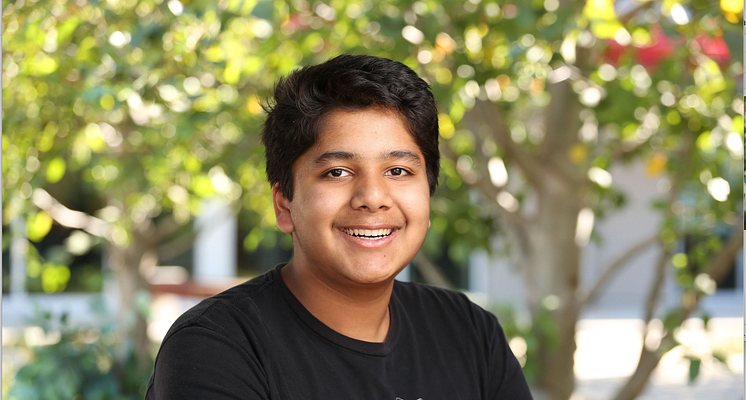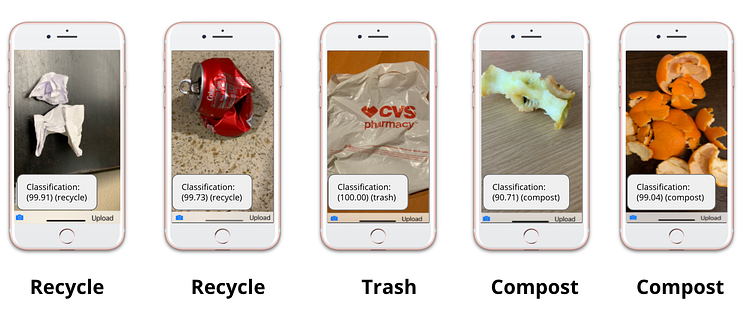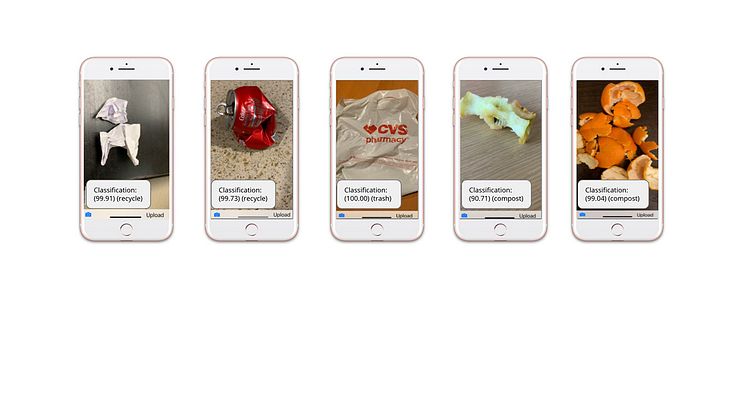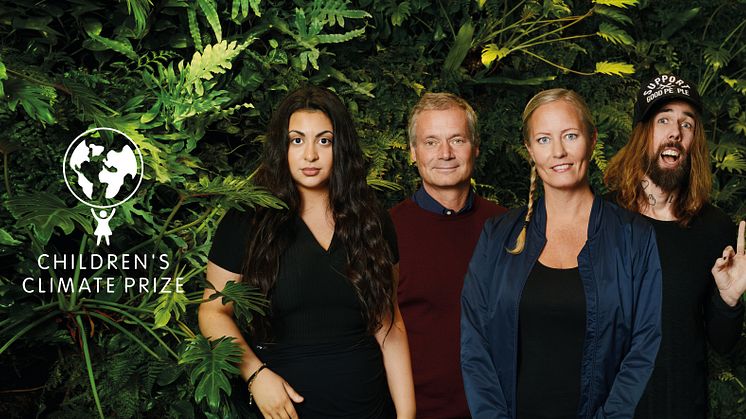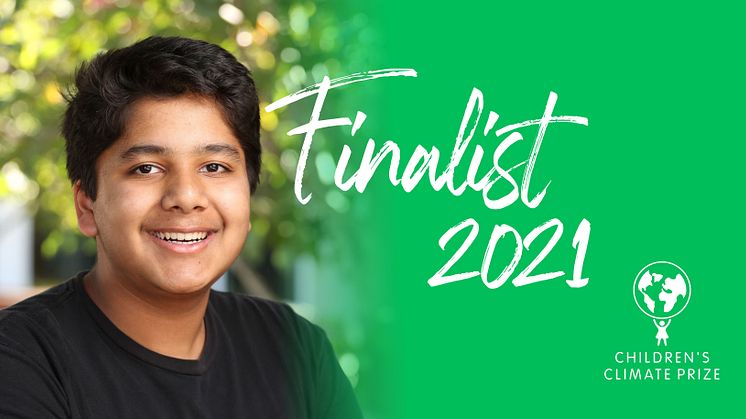
Press release -
The last finalist of the 2021 Children’s Climate Prize is 17-year-old Yash Narayan, from San Carlos, USA
Seventeen-year-old Yash Narayan has developed an app called DeepWaste, which uses AI algorithms to help classify different types of waste for easier sorting. DeepWaste is the first AI-based mobile app for waste classification, and anyone with a smartphone can use it to mitigate climate impact. Yash is now being recognized for this innovative and accessible app. The winner of this year’s Children’s Climate Prize will be revealed on Monday, November 8th.
Every year, over 2 billion metric tons of solid waste are generated globally, of which only 34% are recycled, despite the fact that 75% is recyclable waste. Despite massive investments in educating the public on proper waste management, many remain ignorant on what is considered recyclable or compostable. Errors in waste disposal can lead to “container contamination”. This is where one single error causes an entire container’s waste to end up in a landfill. Waste that isn't properly sorted generates over 1.5 billion tons of CO2 equivalent greenhouse gases every year, meaning it contributes almost as much as every car in the United States to climate change. Yash wanted to find an accessible way to facilitate and simplify waste sorting, and came up with the idea of using a smartphone app with artificial intelligence (AI) for classifying waste in an immediate and exact manner.
– The Children's Climate Prize is very timely as we represent the first generation to face the real impact of climate change and likely the last ones who can do something about it. I'm honored to be a finalist along with such a talented and passionate group of students committed to finding climate solutions. I am inspired to continue my work on DeepWaste to help combat climate change on a planetary scale, says Yash Narayan.
DeepWaste is the first AI-based mobile app for waste classification that can be used on-the-spot (while sorting waste) by anyone with a smartphone. Thanks to the app, waste can be sorted correctly and recycled, which, in the long run, reduces negative climate impact. Previously, data on waste classification was not made accessible, so Yash contacted and collected information from various recycling centers in the US when designing the app. DeepWaste users can take a picture of the waste label and upload it to a database consisting of 1218 items (396 compostable, 427 recyclable, 395 landfill). If an uploaded image does not already exist in the database, the app is updated, thus, constantly expanding it. A user can simply point their smartphone’s camera to any item of waste and get instant feedback within (approximately) 100 ms. DeepWaste can identify waste products with high accuracy, even when the shape of the object has been deformed, such as a wrinkled piece of paper, a crushed soda can or something as small as an apple seed.
DeepWaste recently teamed up with Trash for Peace, a non-profit organization specializing in waste management that supports socially vulnerable populations who collect litter and cans on the street. The collaboration is financially supported by the US Department of Environmental Quality, which allows for DeepWaste to collect and publish the largest database of waste classification in open source code to facilitate future research in the area. Yash’s goal via DeepWaste is to reduce incorrect waste management by 1%, which in saved greenhouse gas emissions is equivalent to removing more than 6.5 million fossil fuel-using vehicles.
DeepWaste – Applying artificial intelligence for waste classification to combat climate change
Yash Narayan, 17 years old from San Carlos, USA
The jury’s motivation:
Every year, a lot of unsorted waste is thrown away that is deposited or burned, which contributes to unnecessary emissions. This is a huge problem and represents a challenge for our societies in order to achieve effective waste management. Correctly sorted waste becomes a resource and forms the basis for the circular flow of resources. This is a measure that is absolutely necessary in order to achieve more sustainable consumption and is an example of something that we can all contribute to. A resource-efficient circular economy can be perceived as complex and difficult, but here Yash has found a good and interesting solution with great innovation. DeepWaste is an impressive project, self-teaching, accessible, scalable, and the development potential is enormous. Yash and DeepWaste are right on time and contribute to increased awareness and knowledge.
Categories
The Children’s Climate Prize is an international prize annually awarded to young people who have made extraordinary efforts for the climate and environment. The award and financial support are managed by the Children’s Climate Foundation, which was initiated by the award’s founder Telge Energi. Based on Telge Energi’s belief in young people’s ability to drive change in the world, the award is now a part of their ongoing work for sustainable development and production of renewable energy in Sweden. The winners of the prize are celebrated at an award ceremony in November each year and receive a diploma, medal and prize money of SEK 100,000 to continue developing their projects.

